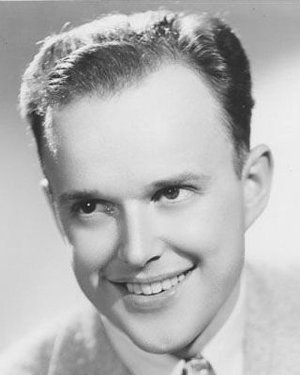Will Bradley

-
Birth Name
Wilbur Schwitchenberg -
Born
July 12, 1912
Newton, New Jersey -
Died
July 20, 1978 (age 66)
Flemington, New Jersey -
Featured Vocalists
Terry Allen
Carlotta Dale
Lynn Gardner
Louise Tobin
Jimmy Valentine
Will Bradley will always be remembered most for his boogie-woogie orchestra of the early 1940s. Bradley himself, though, preferred to play ballads and had a long and successful career as a trombonist outside of his band. He was a busy studio musician throughout the 1930s, working with such artists as Red Nichols, Eddie Cantor, Victor Young. Jacques Renard, Nat Shilkret, Andre Kostelanetz, Raymond Paige, Kate Smith, and Al Jolson. In 1935, Glenn Miller, who thought Bradley the best trombonist in the business, hired him to play in Ray Noble’s American band, which Miller was organizing. He left Noble the following year, however, and returned to studio work. Bradley also played with Milt Shaw’s orchestra in 1931, where he met drummer Ray McKinley.
Bandleading Years
Bradley’s name was unknown to the general public when in 1939 William Morris talent agent Willard Alexander suggested he form a swing orchestra. Trombone-playing leaders, such as Miller and Tommy Dorsey, were currently popular, and Alexander felt Bradley would do well on his own. Drummers were also the rage, and Alexander teamed Bradley with old bandmate McKinley, who was then with Jimmy Dorsey. Backed by a powerful publicity campaign, the duo’s orchestra debuted in September 1939 under Bradley’s name and soon had its first big hit in "Celery Stalks at Midnight.”
The band initially featured pianist Freddie Slack, who would later go on to lead his own orchestra. McKinley sang on upbeat and speciality numbers. Carlotta Dale and Larry Sothern were initial vocalists, with Sothern being replaced by Jimmy Valentine in January 1940. Dale remained through March 1940, when Jean Sawyer replaced her. Louise Tobin took over female vocalist duties in July, staying until September when she learned she was pregnant. Phyllis Myles replaced Tobin. Myles left at the end of the year, and Valentine left in early January 1941. Lynn Gardner and Terry Allen replaced them. The group recorded on the Vocalion label in September and October 1939 before switching to Columbia in November.
In 1940, Bradley and McKinley began to feature a boogie woogie sound in their arrangements. Initial success with the song “Beat Me Daddy, Eight to the Bar” sparked a slew of similar recordings, such as “Bounce Me Brother, with a Solid Four” and “Scrub Me Mama, with a Boogie Beat.” The new style proved popular with the public, and the band quickly developed a niche following. By early 1942, however, Bradley had tired of boogie-woogie and wanted to focus more on ballads. McKinley disagreed and left to form his own band in February.
Bradley set about reforming his orchestra, with Allen and Gardner remaining as vocalists, but he was forced to give it up in mid-1942 due to health reasons. A bad case of “dropsy,” the name once used to describe edema, kept him from traveling. He offered Allen the job of fronting the band, but Allen declined and instead joined Claude Thornhill. The new orchestra did not enter the studio.
Later Years
Bradley continued to record under his own name during the war and through the late 1940s, using studio musicians, on the Signature label. Ironically, considering the cause of his orchestra’s break-up, in 1944 he released material on the Beacon/Celebrity label as Will Bradley and His Boogie Woogie Boys. In 1947, he also recorded with vocalist Anita O’Day on Signature, and in the 1950s he released three albums, which included one RCA collection of boogie woogie songs.
Bradley worked often as a studio musician after the war and spent many years in the Tonight Show orchestra. In 1953, he did a brief spell with the Sauter-Finegan Band and also composed several classical works in his later years. Will Bradley passed away in 1978.
Vocalist Timeline
Note: Dates may be approximate. Some vocalists may not be listed due to lack of information on their dates of employment.
Sources
- Simon, George T. The Big Bands. 4th ed. New York: Schirmer, 1981.
- “Night Club Reviews: Famous Door, New York.” Billboard 16 Mar. 1940: 20.
- Flynn, Ed. “Flashes From Flynn.” Down Beat 15 Apr. 1940: 4.
- “Vaudeville Reviews: Paramount, New York.” Billboard 7 Sep. 1940: 14.
- “Returning.” Down Beat 15 Aug. 1940: 20.
- “Bradley Gets Sparrow.” Down Beat 15 Nov. 1940: 1.
- “Vocalist with Band.” The Tuscaloosa News [Tuscaloosa, Alabama] 19 Jan. 1941: 7.
- Radio Guide. The Milwaukee Sentinel 27 Apr. 1941: 9-C.
- Gum, Coburn. “On the Records.” St. Petersburg Times [St. Petersburg, Forida] 1 Jun. 1941.
- “Lovely Lynn.” Down Beat 1 Dec. 1941: 4.
- “Separate Band for Will and Ray.” Billboard 31 Jan. 1942: 9.
- Dexter, Dave Jr. “Ray McKinley, Will Bradley Part!” Down Beat 1 Feb. 1942: 1.
- “Few Changes In Bradley Orchestra.” Down Beat 1 Mar. 1942: 1.
- “Movie Machine Reviews.” Billboard 28 Mar. 1942: 113.
- “Here's That New Will Bradley Band.” Down Beat 15 Apr. 1942: 3.
- “Orchestra Notes.” Billboard 27 Jun. 1942: 21.
- “Will Bradley Drops Band.” Down Beat 1 Jul. 1942: 3.
- “Orchestra Notes.” Billboard 8 Aug. 1942: 23.
- “Orchestra Notes.” Billboard 3 Oct. 1942: 23.